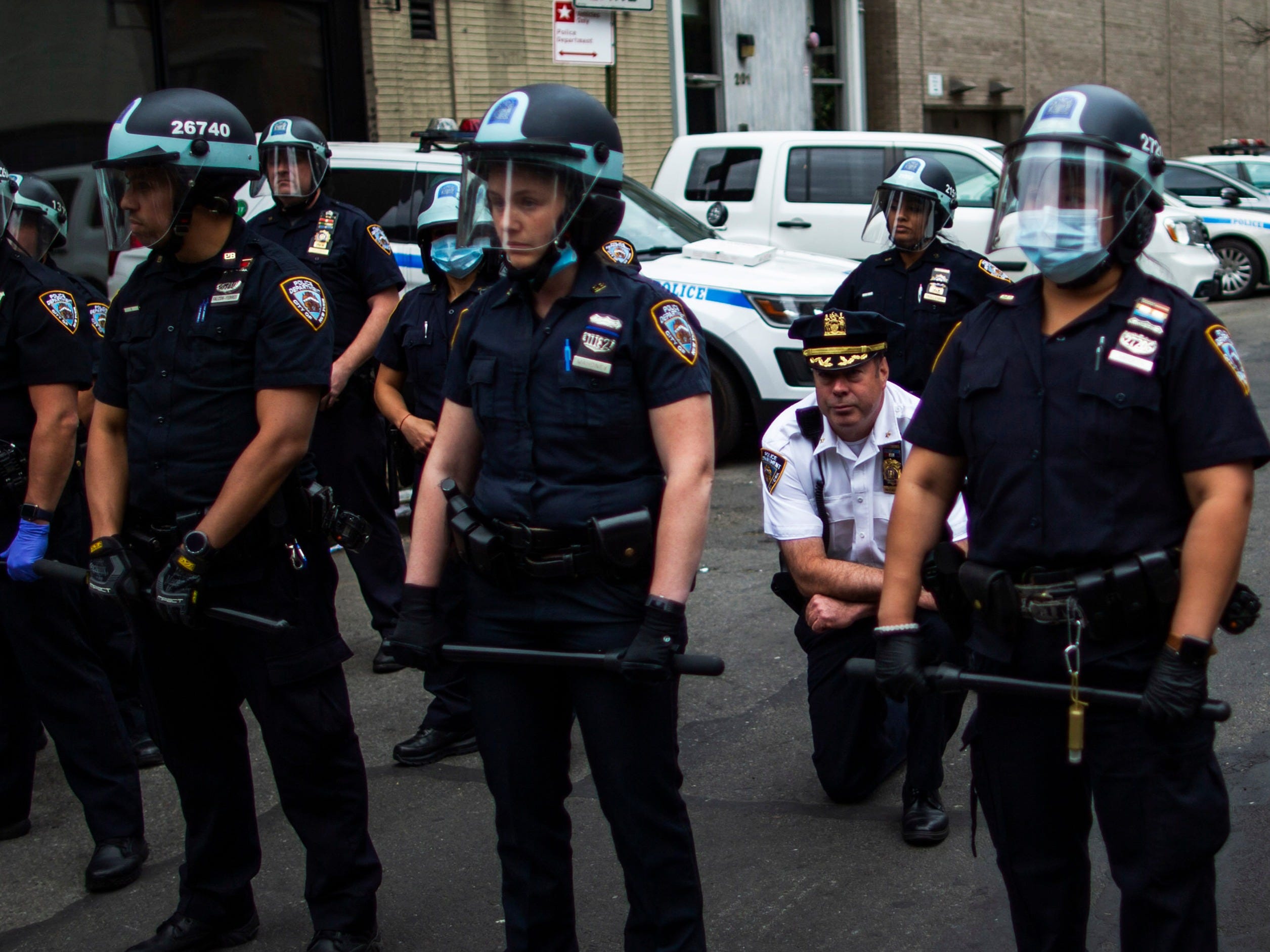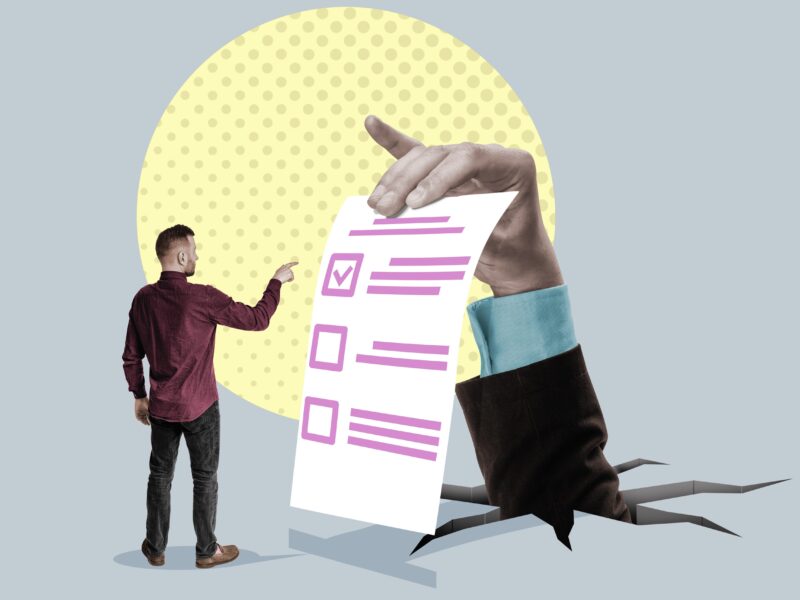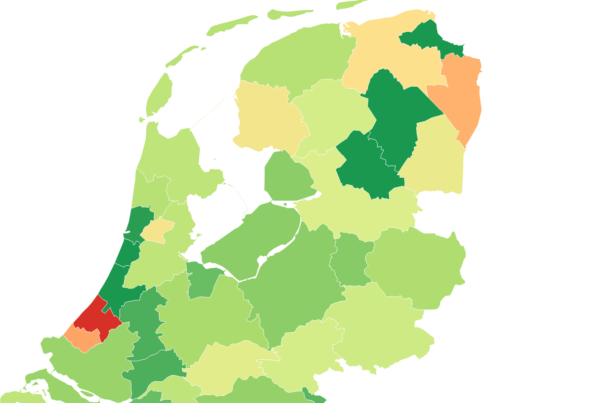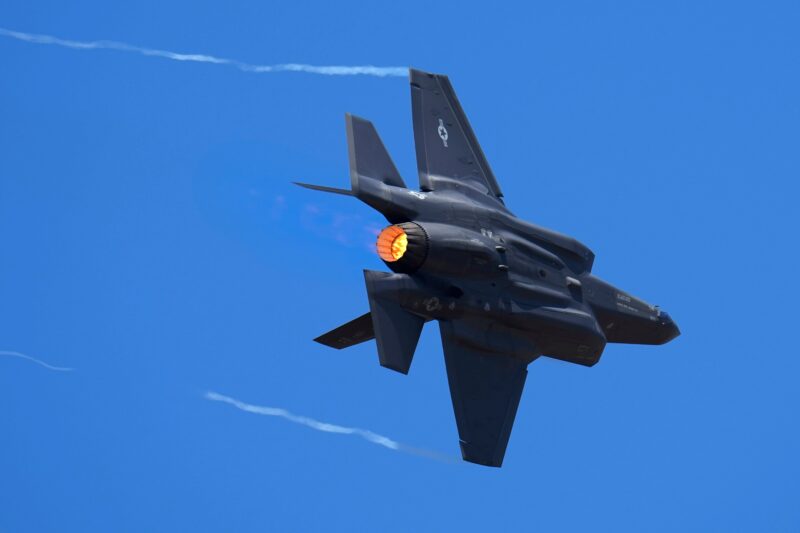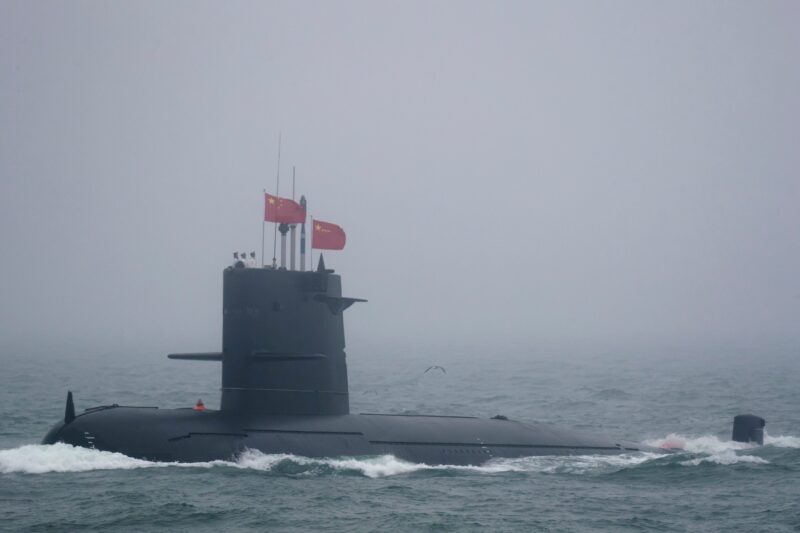- Police officers in Seattle and New York City have been seen with their badge numbers covered as they respond to protests over the police killing of George Floyd.
- The National Lawyers Guild New York City chapter sent a letter to the New York Police Department saying that the nonprofit would sue to make officers uncover their badges. They allege that this is a way for officers to “violate demonstators’ rights without consequence.”
- An NYPD spokesperson said that officers are wearing mourning bands to honor the officers who have died from COVID-19, and that they may have fallen from the top of the badge to cover their badge numbers. She said it is a violation to intentionally cover the number.
- In Seattle, officers have covered their badges with electrical tape, which is allowed. One Councilmember wants to make it a violation.
- Visit Insider’s homepage for more stories.
Some police officers in New York City and Seattle have been seen with their badge numbers covered at protests over George Floyd’s death.
An NYPD police spokesperson said that they are wearing them as a mourning bands for officers who have died as a result of the coronavirus pandemic, continuing a pre-protest tradition honoring officers that have died while on duty.
Advocates in the two cities believe that police are covering up their bands in order to escape culpability for misconduct.
The National Lawyers Guild, a legal nonprofit that works with activists and sends legal observers to protests, sent a letter to the New York Police Department on Tuesday demanding that police working at George Floyd protests uncover their badges immediately, and provide information of that to the Guild by end of day Wednesday. If the demands aren’t met, the Guild’s New York City president said that the group would sue the department.
The letter stated that covering badges is in violation of the NYPD's Patrol Guide and that the continued, widespread pattern of officers in violation of the guide could subject New York City itself to legal liability as well.
"This action - in addition to being violative of Patrol Guide § 204-17 - serves to prevent aggrieved individuals from being able to identify the perpetrators of police misconduct," wrote Andy Izenson, president of the New York City chapter of the National Lawyers Guild.
NYPD officers in protests across the city have been seen with their badge numbers obscured, like these officers in Flatbush, Brooklyn and these officers at the Barclays Center.
One officer told The Intercept on Saturday in Brooklyn that the bands were mourning bands to honor dead officers, but when asked why his band covered his badge number, he replied that "It's old. It fell down."
NYPD spokesperson Sergeant Mary O'Donnell told Business Insider on Wednesday night that it is a "conspiracy theory" that officers are covering up their badges intentionally. Instead, she said, the mourning bands are elastic and can fall down from the insignia, their intended location, to the badge numbers while officers are in the field. O'Donnell stated that all officers are required to tell their badge number when asked.
The patrol guide allows officers to wear a mourning band for a short period of time following an officer's death, but it is not supposed to cover up badge numbers. On April 16, New York City police commissioner Dermot Shea posted a photo of a mourning band, stating that officers were wearing them to commemorate the NYPD officers who have died from COVID-19. O'Donnell said that is still the case.
New Yorkers may begin to see our officers with black mourning bands across their shields—and across their hearts. We wear these in quiet commemoration of our 27 brothers and sisters we’ve lost to #COVID.
Another way we honor our vow to #NeverForget. pic.twitter.com/JiPo0SVOqc
— Commissioner Shea (@NYPDShea) April 16, 2020
"This is not a new phenomenon," Chris Dunn, legal director for the New York Civil Liberties Union, told the Intercept. "There have been numerous prior instances of mourning bands concealing badge numbers."
A similar argument has played out in Seattle, where officers have been seen covering their badge numbers with black electrical tape to act as makeshift mourning bands.
At a meeting with protestors on Tuesday, Seattle Mayor Jenny Durkan said that the city was looking into other ways for officers to mourn. Seattle councilmember and chair of the public safety committee Lisa Herbold told The Stranger that it is not a violation for Seattle police officers to cover their badge numbers.
"The fact that the mourning bans are placed right over the badge numbers is simply not acceptable," she told The Stranger.
After police, with their names on their badges obscured, contained and then pepper-sprayed a crowd of protestors at the 1999 World Trade Organization meeting in Seattle, an ordinance was passed to require police officers to have their first initial and last name visible on their badge at all times. It says nothing about the badge number.
